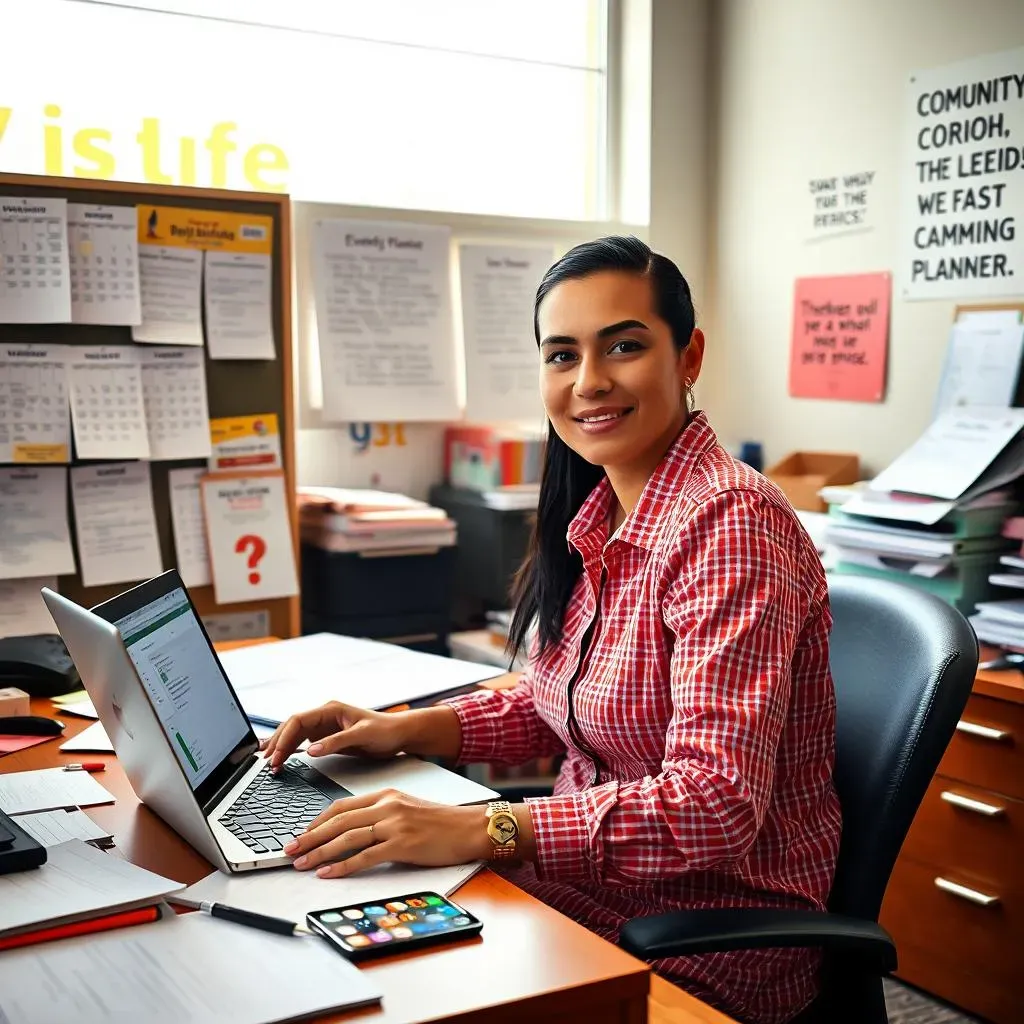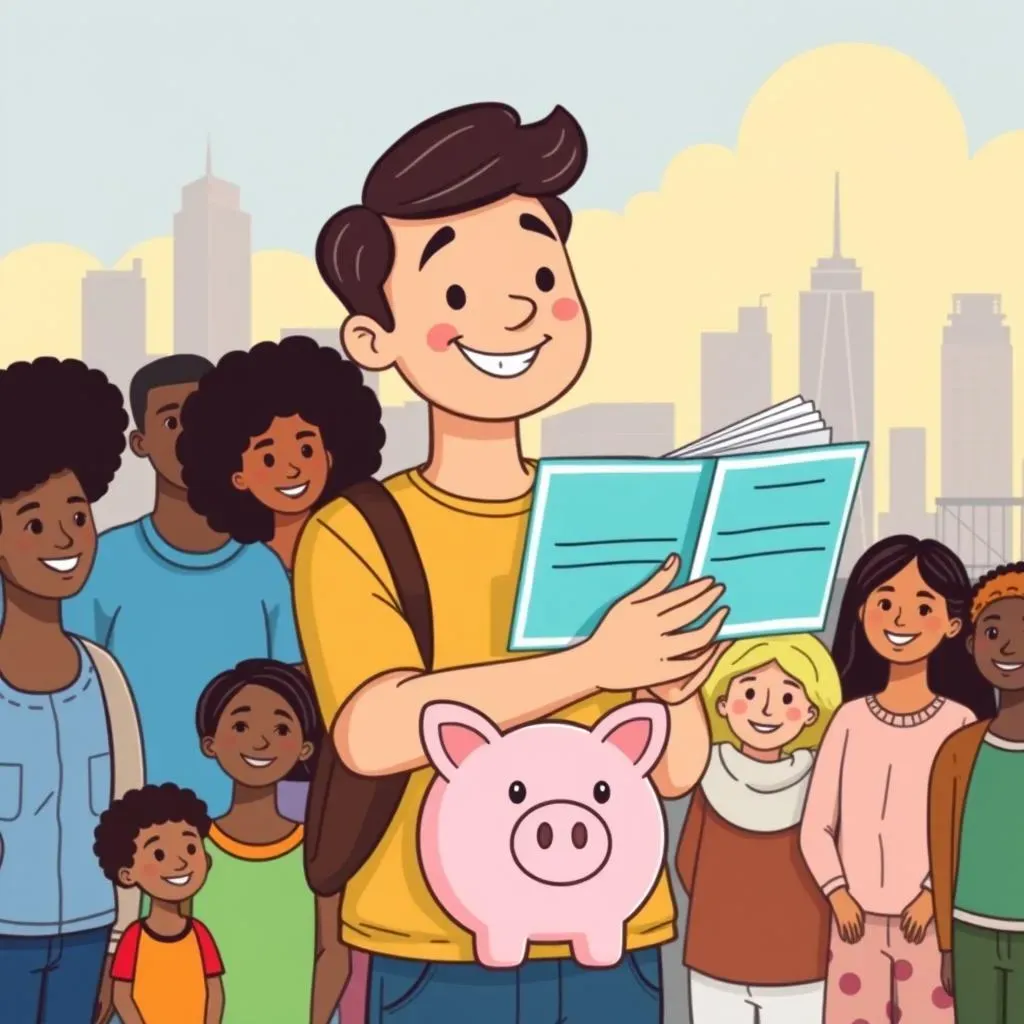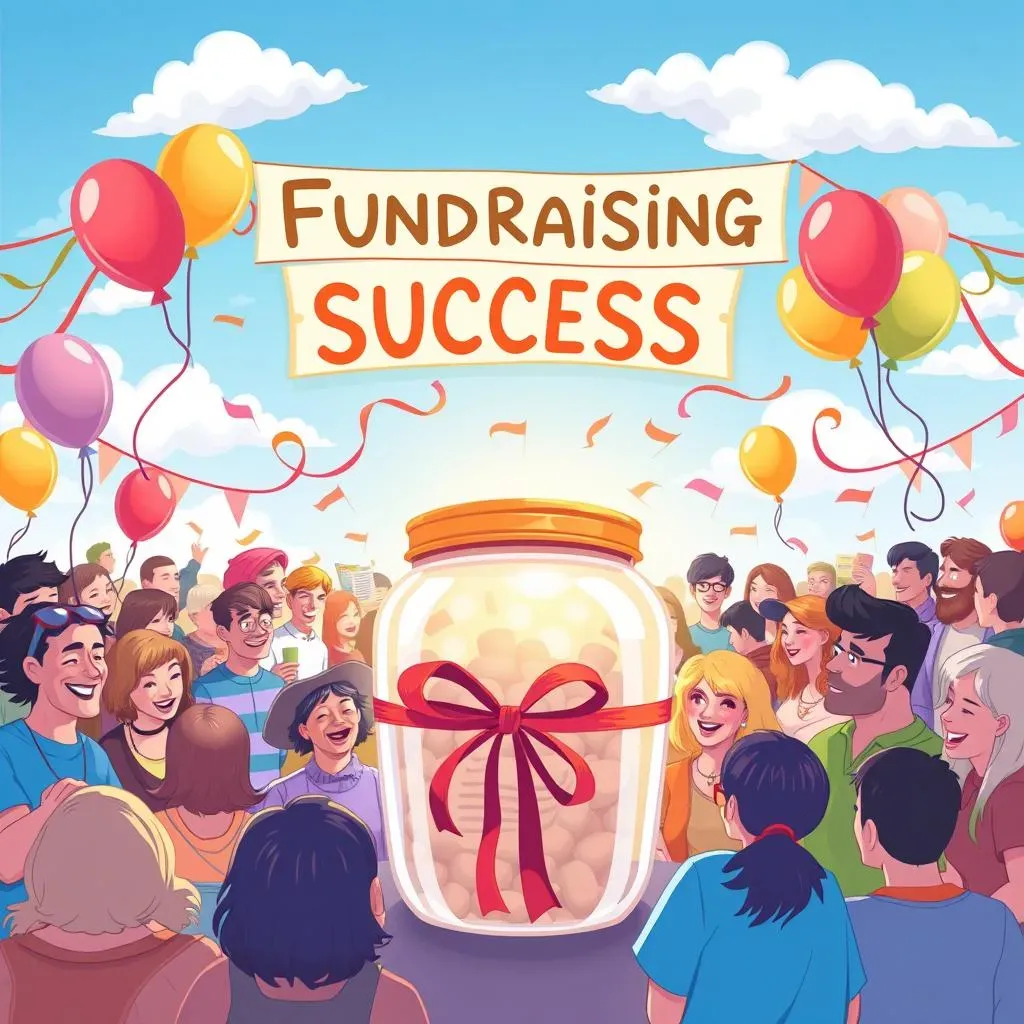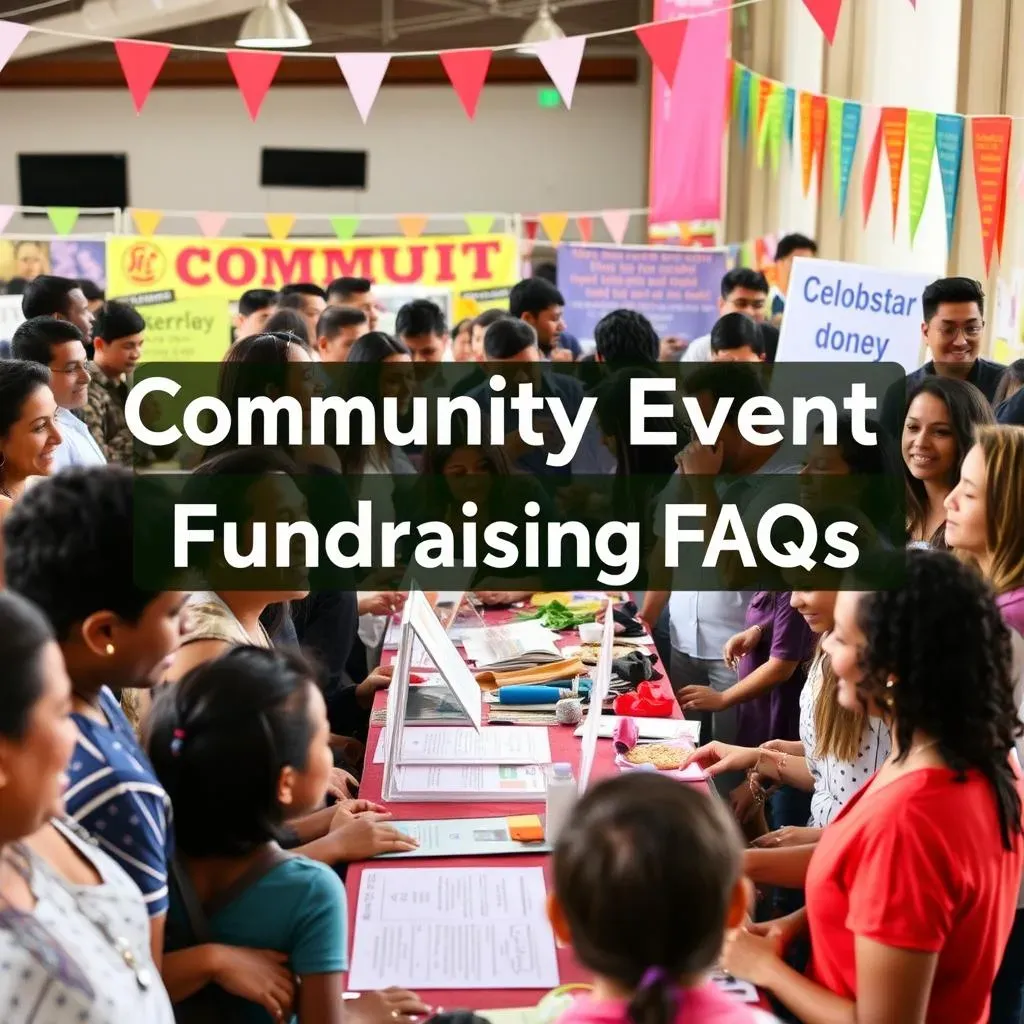Table of Contents
Ever wondered how to turn a simple gathering into a powerful force for good? Community event fundraising can be that magic ingredient, transforming local fun into real support for causes you care about. But, like any good adventure, it comes with questions. That's why we've put together this guide, packed with answers to your most pressing "Community event fundraising FAQs." We'll walk you through everything from why hosting an event is a great idea, to how to plan it, collect funds effectively, and ensure your event is a smash hit. Whether you're a seasoned event planner or a first-timer, we're here to make sure you're equipped with the knowledge you need. We'll explore how to choose the right kind of event, tackle the nitty-gritty of budget and logistics, and make sure your fundraising efforts actually pay off. So, get ready to dive in and discover how you can make a difference in your community, one event at a time.
Why Host a Community Event for Fundraising?

Why Host a Community Event for Fundraising?
Okay, so you're thinking about raising some dough for a cause, and you're wondering, why bother with a whole event? Well, let me tell you, it's not just about collecting cash. It's about something way cooler: bringing people together. A community event is like a magnet, drawing in folks who might not normally connect. Think about it – you’re not just asking for handouts; you’re creating an experience, a memory. It's a chance to show your community exactly what you're passionate about. Plus, it's way more fun than just sending out emails, right? You get to see the smiles, hear the laughter, and feel the buzz of people actively participating in something good. That energy? It's contagious, and it can inspire even more support. So, if you want to make a real impact, an event is the way to go.
Planning Your Community Event: Key Fundraising FAQs

Planning Your Community Event: Key Fundraising FAQs
What kind of event should I host?
Alright, so you're sold on the idea of an event, but now you’re staring at a blank calendar, right? Don't sweat it. The first thing you need to figure out is what kind of event fits your cause and your community. Are we talking a high-energy fun run? Or maybe a relaxed bake sale with some crafty bits? Think about what your community enjoys and what kind of vibe you want to create. A fancy gala might not work for a group of outdoorsy types, just like a mud run might scare off the folks who prefer their tea with scones. It's all about matching the event to the people you're trying to reach and the cause you're supporting. Don't be afraid to brainstorm a little. The more creative you get, the better!
Consider these options:
- Active Events: Fun runs, walkathons, bike rides
- Food-Focused Events: Bake sales, chili cook-offs, potlucks
- Creative Events: Art auctions, craft fairs, talent shows
- Relaxed Gatherings: Movie nights, game tournaments, casual picnics
How do I set a realistic fundraising goal?
Okay, let's talk numbers. Setting a fundraising goal is like aiming for the moon – you want to reach high, but you also need to make sure you’ve got a rocket that can actually get you there. Don’t just pick a number out of thin air. Start by looking at your past events, if you’ve had any. How much did you raise? What worked, and what didn't? Then, get real about your costs. How much will the venue cost? What about supplies? And don't forget about the little things, like marketing and permits. Once you have a good handle on your expenses, you can start thinking about how much you need to raise to cover those costs and actually make a difference. It's better to set a goal you can realistically achieve and then exceed it, rather than setting an impossible target.
Here's a handy quote to keep in mind:
What are the essential planning steps?
Alright, you've got your event idea and your fundraising goal. Now it's time to get organized. Think of planning your event like building a house, you need a solid foundation. Start by creating a timeline. Work backwards from your event date, and break down each step into smaller chunks. Who's going to handle what? Do you need a team, or can you tackle it solo? You need to think about your venue, your budget, and all of the little details, like permits and insurance. Don’t forget to promote your event! Get the word out through social media, flyers, and word-of-mouth. The more organized you are, the smoother your event will run, and the more successful you'll be. It might feel like a lot, but breaking it down into smaller tasks makes it way less overwhelming.
Collecting and Managing Funds: Community Fundraising FAQs

Collecting and Managing Funds: Community Fundraising FAQs
How do we collect donations?
Alright, so you've planned the coolest event ever, now how do you actually get the money into the right hands? It's not like you can just set up a lemonade stand and hope for the best, right? You need a system. Online fundraising platforms are your best friend here. They make it super easy for people to donate with just a few clicks, and you can track everything. But don't forget about the good old-fashioned methods too! Have collection boxes at your event, and make sure you have a way to process cash and checks. And for those old-school donors who prefer to sponsor you, have a sponsorship form on hand. Just be sure you have a way to keep track of it all.
Collecting money is a key part of your event, here is a quick list of how to get the money:
- Online Platforms: Use sites like GoFundMe or JustGiving
- Collection Boxes: Place them strategically at your event
- Sponsorship Forms: For those who prefer to pledge an amount
- Cash and Checks: Have a safe way to handle these
How do we handle the money responsibly?
Okay, so the money is rolling in, now what? This is where the serious stuff starts. Handling funds responsibly is super important. It's about trust, and transparency. Open a separate bank account just for your fundraising event. This way, you can keep everything separate from your personal funds. Keep detailed records of every single penny that comes in and goes out. This is not just good practice; it's crucial for accountability. You might need to provide a financial report to your supporters and to the charity you are supporting. Also, make sure you have a couple of people on your team who are responsible for handling the money. More eyes on it means less chance of anything going sideways. Remember, people are giving their money because they believe in your cause, so handle it with care.
Here are some essential tips for managing funds:
Tip | Description |
|---|---|
Separate Account | Open a dedicated bank account for the fundraiser. |
Detailed Records | Keep track of every transaction. |
Financial Report | Prepare a report to share with supporters. |
Team Responsibility | Have multiple people involved in handling the money. |
Making Your Community Event Fundraising a Success

Making Your Community Event Fundraising a Success
Alright, you've done the hard work, you've planned, you've prepped, and now it's showtime! But just because you've got an event doesn't guarantee success. Making your community event a fundraising triumph is all about the little extras. Think about how you can keep people engaged throughout the whole event. Have some fun activities, maybe some games, or even a raffle. Keep the energy up, and make sure everyone feels like they're part of something special. Don’t forget to thank everyone who attends, donates, or helps out. A simple "thank you" goes a long way. And after the event, don't just disappear. Share the results, show people what you achieved, and keep the momentum going.
Here are some key elements to focus on for success:
- Engagement: Keep attendees entertained and involved.
- Gratitude: Thank everyone for their support.
- Post-Event Follow-Up: Share results and keep the momentum going.
Let’s talk about promotion, it's not enough to just plan a great event, people need to know about it! Use social media to your advantage. Create a buzz, share photos and videos, and get people excited. Don't underestimate the power of good old word-of-mouth either. Get your friends, family, and neighbors involved in spreading the word. Make sure your promotion materials are clear, engaging, and easy to understand. Include all the important details: the date, the time, the location, and how to donate. And don’t forget to highlight the cause you’re supporting. People are more likely to get involved when they know where their money is going and why it matters. Remember, a well-promoted event is way more likely to be a successful event.
Here's a quick checklist to help with promotion:
Action | Details |
|---|---|
Social Media | Use platforms like Facebook, Instagram, and Twitter |
Word of Mouth | Encourage friends and family to spread the word |
Clear Materials | Make sure your flyers and posters are easy to read |
Cause Focus | Highlight why your fundraising is important |
Finally, let's talk about feedback, because even the most amazing event can be made even better with a little bit of feedback. After your event, reach out to attendees and ask them what they thought. What did they enjoy? What could have been better? Don't be afraid of constructive criticism. It's how you improve. Use this feedback to plan your next event, and make it even more awesome. Also, take a moment to reflect on what you learned from this experience. What went well? What could have gone better? Each event is a chance to grow and learn, so embrace the journey, and keep making a difference in your community. And who knows, your next community event might just be even better than this one!
A quote to remember:
